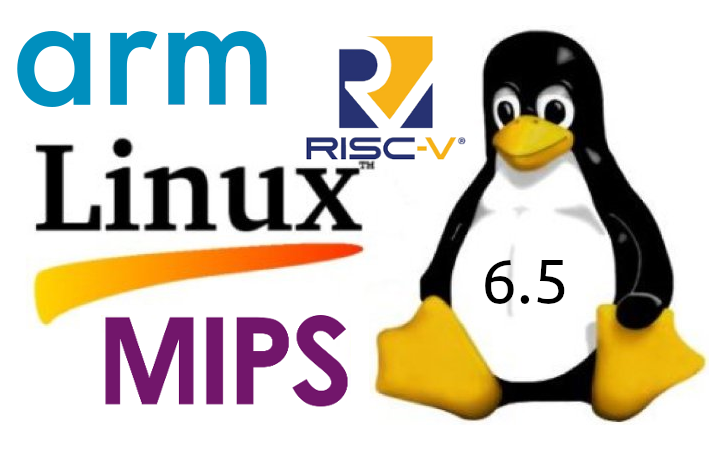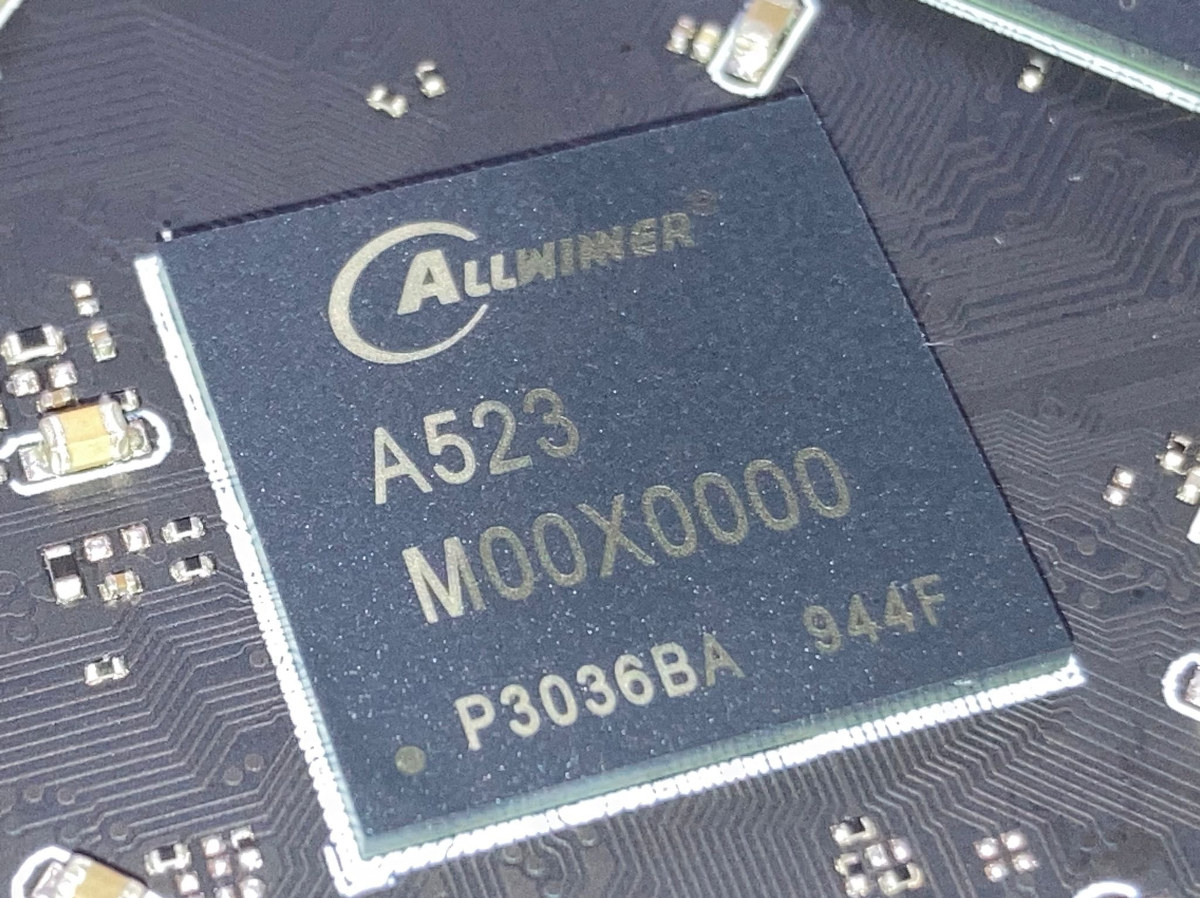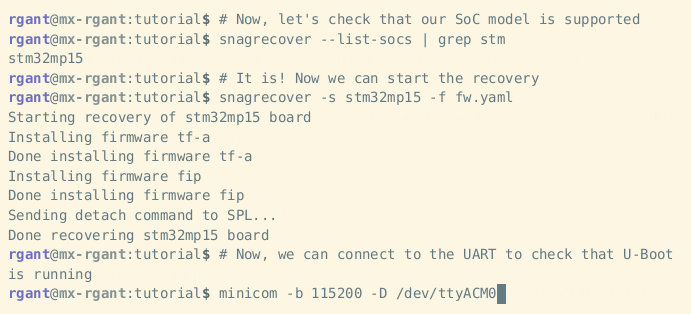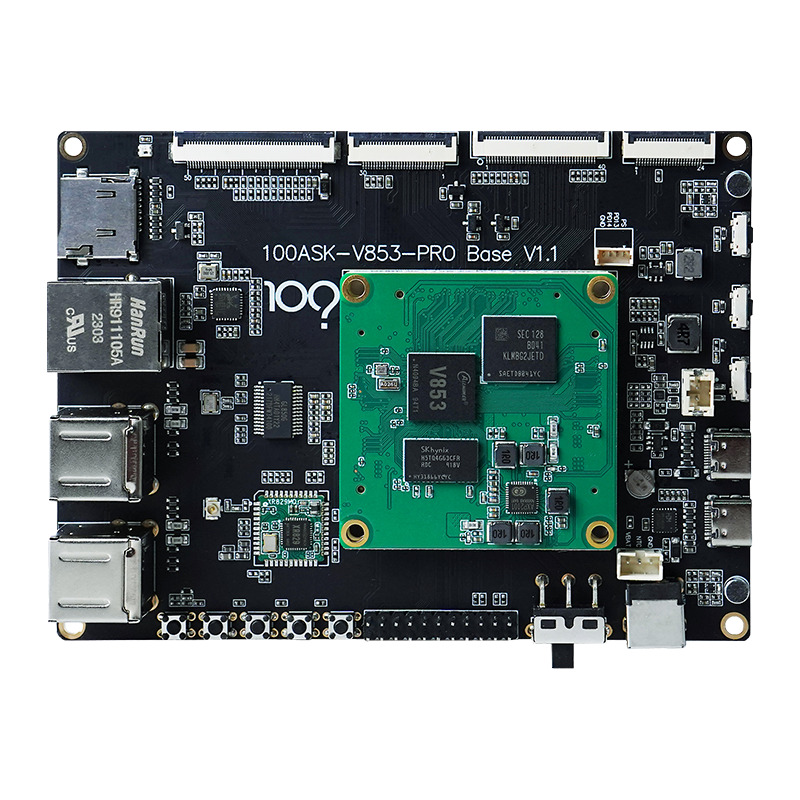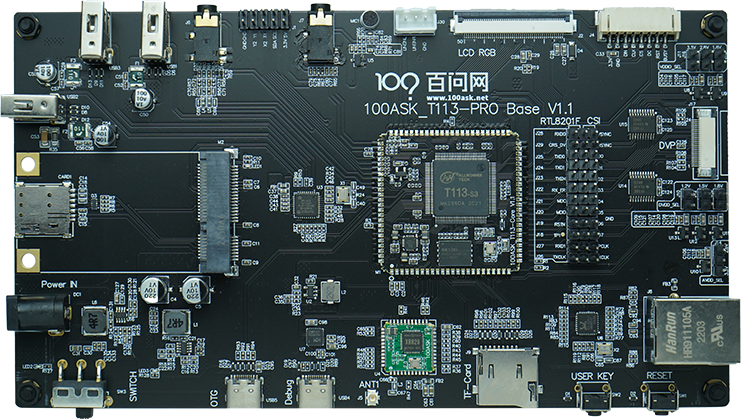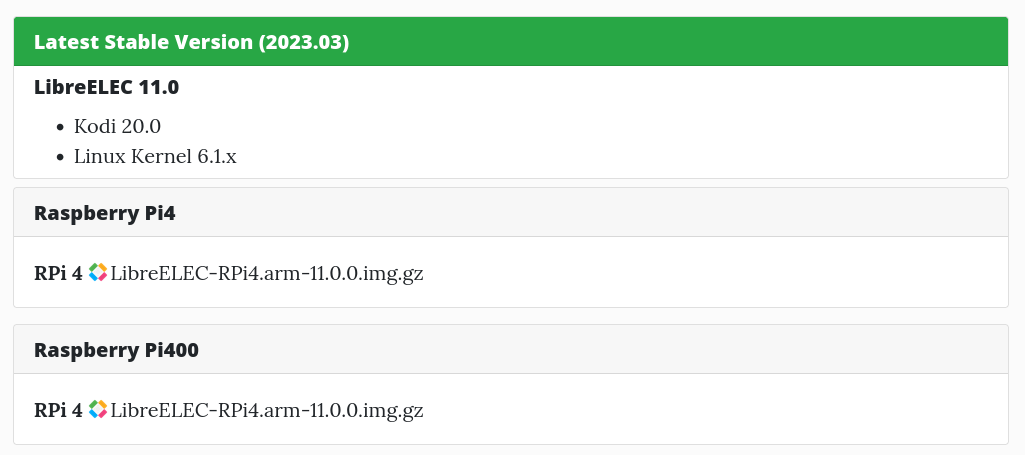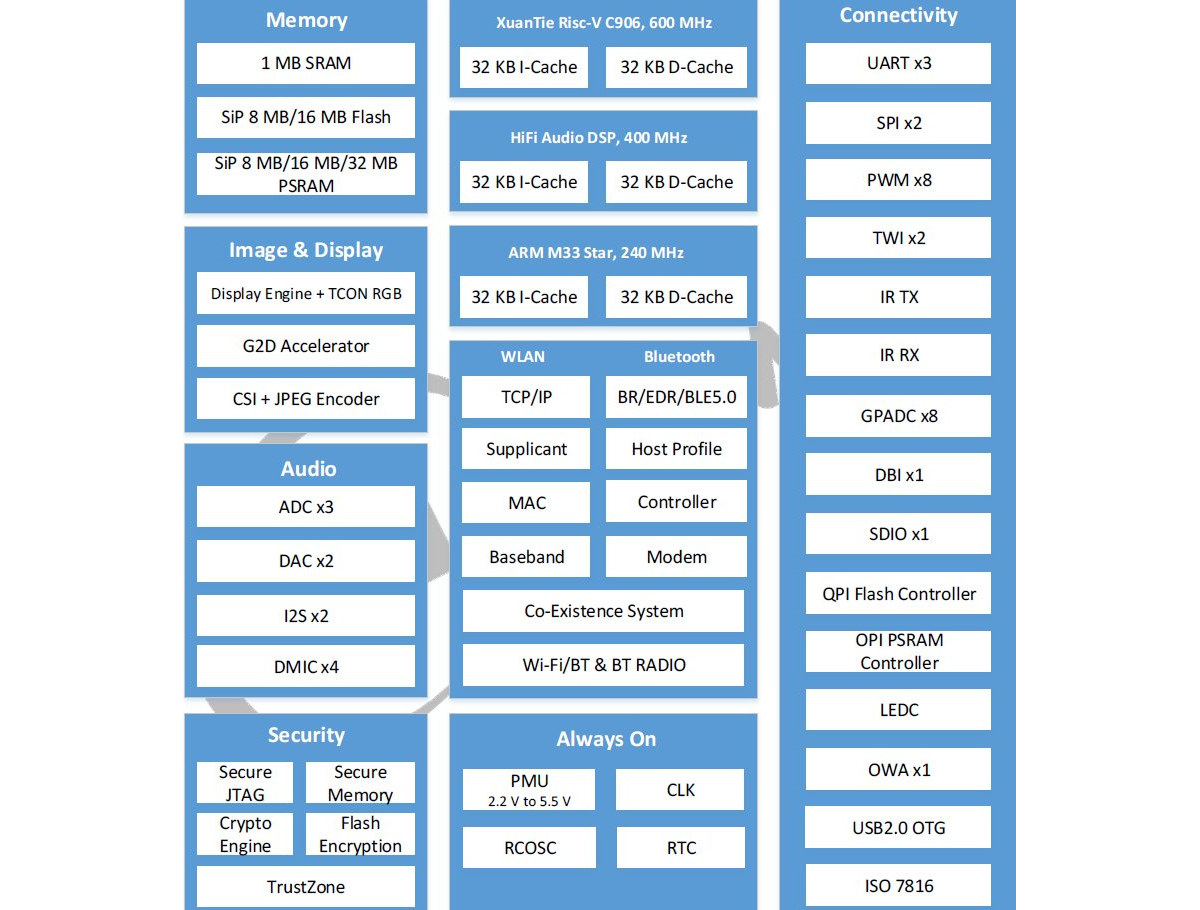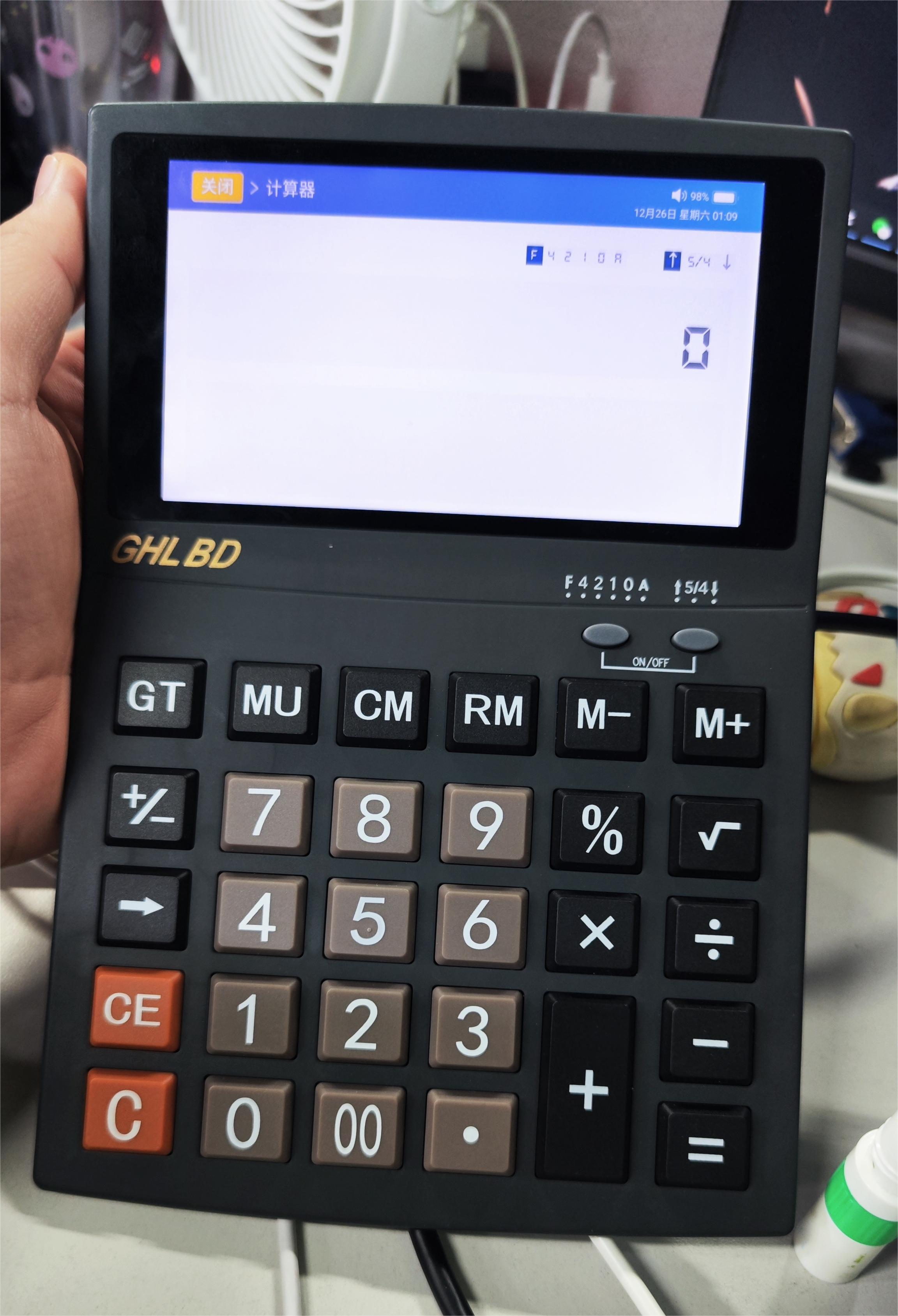Linus Torvalds has just announced the release of Linux 6.5 on the Linux Kernel Mailing List (LKML): So nothing particularly odd or scary happened this last week, so there is no excuse to delay the 6.5 release. I still have this nagging feeling that a lot of people are on vacation and that things have been quiet partly due to that. But this release has been going smoothly, so that’s probably just me being paranoid. The biggest patches this last week were literally just to our selftests. The shortlog below is obviously not the 6.5 release log, it’s purely just the last week since rc7. Anyway, this obviously means that the merge window for 6.6 starts tomorrow. I already have ~20 pull requests pending and ready to go, but before we start the next merge frenzy, please give this final release one last round of testing, ok? Linus The earlier […]
Allwinner A523 octa-core Cortex-A55 processor to show up in tablets, SBCs
Allwinner A523 is an octa-core Cortex-A55 processor clocked at up to 1.4/1.8GHz in big.LITTLE (DynamIQ) configuration and mainly designed for tablets with multiple display interfaces such as two 4-lane MIPI DSPI interfaces, two MIPI CSI camera interfaces, a Mali-G57 GPU, and more. But the block diagram below also shows two Gigabit Ethernet (GMAC) interfaces and HDMI 2.0 output among other interfaces meaning it will likely be used in Smart Home products as the Allwinner R828/MR828, and possibly automotive products as the Allwinner T527. I first discovered the Allwinner A523 last March via a tweet by 柚木 鉉 (GLGH_), but there was little information at that time. We now have further details about the processor and upcoming products such as the Teclast P26T, and a potential Allwinner A523 single board computer or module. Allwinner A523 preliminary specifications: CPU Application – Octa-core Arm Cortex-A55 @ in big.LITTLE configuration with four cores @ […]
Snagboot is an open-source cross-vendor recovery tool for embedded targets
Bootlin has just released the Snagboot open-source recovery tool for embedded platforms designed to work with multiple vendors, and currently STMicro STM32MP1, Microchip SAMA5, NXP i.MX6/7/8, Texas Instruments AM335x and AM62x, and Allwinner “sunxi” processors are supported. Silicon vendors usually provide firmware flashing tools, some closed-source binaries, that only work with their hardware. So if you work on STM32MP1 you’d use STM32CubeProgrammer, while SAM-BA is the tool for Microchip processors, NXP i.MX SoC relies on UUU, and if you’ve ever worked on Allwinner processors you’re probably family with sunxi-fel. Bootlin aims to replace all those with the Snagboot recovery tool. The Python tool is comprised of two parts: snagrecover using vendor-specific ROM code mechanisms to initialize external RAM and run the bootloader (typically U-Boot) without modifying any non-volatile memories. snagflash communicates with the bootloader over USB to flash system images to non-volatile memories, using either DFU, USB Mass Storage, or […]
100ASK-V853-Pro – A feature-rich Allwinner V853 board designed for AI vision applications
The 100ASK-V853-Pro board is a development kit consisting of an Allwinner V853 system-on-module board (SoM) and a feature-rich carrier board with a large number of interfaces. Allwinner V853 supports up to 1TOPS of NPU computing power and is mainly for AI vision application development. The core board contains a DDR and eMMC as well as a PMU chip (AXP2101) and is connected to the carrier board through a board-to-board connector. All the functional resources of the V853 are drawn out through the carrier board. The carrier board comes with 2-channels CSI camera interfaces as well as RGB and MIPI DSI display interfaces. Although 1 TOPS of AI computing power is not outstanding, the NPU can still be used to accelerate AI vision applications at the edge. The board also comes with four USB 2.0 ports (two Type-A, two Type-C), an 100Mbps Ethernet port, a 22-pin header for expansion, and five […]
100ASK-T113-Pro Allwinner T113-S3 industrial board, and Allwinner T113-S4 with 256MB DDR3
Last year, Jean-Luc introduced the T113-S3 processor and the small MangoPi-Dual board with T113-S3. This time, I will introduce a development board with relatively rich resources, the 100ASK-T113-PRO, which consists of a core board with T113-S3 and a carrier board with a large number of peripheral interfaces, and the upcoming Allwinner T113-S4 SoC with 256MB DDR3. 100ASK-T113-Pro Allwinner T113-S3 industrial board While the T113-S3 and D1s/F133 RISC-V processors are pin-to-pin compatible, the T113-S3 is a dual-core Arm Cortex-A7 processor with HiFi4 DSP, CAN interfaces added (CAN is not mentioned publicly, but can be seen in the T113-S3 Datasheet) and 128MB DDR3 on-chip memory. 100ASK-T113-PRO preliminary specifications: T113-S3 Core Lite: SoC – Allwinner T113-S3 CPU – Dual-core Arm Cortex-A7 with 32 KB L1 I-cache + 32 KB L1 D-cache per core, and 256 KB L2 cache DSP – Single-core HiFi4 Memory – 128 MB DDR3 (SIP) Storage – 16MB SPI NandFlash […]
LibreELEC 11 released with Kodi 20, brings back Amlogic platforms
LibreELEC 11 lightweight media center Linux distribution based on Kodi 20 “Nexus” has just been released with various improvements on x86 and Arm platforms. Kodi 20 was released and available for download in January with AV1 hardware video decoding in Android and x86 (VAAPI) platforms with AV1-capable GPU or VPU, FFMPEG 4.4, Pipewire support in Linux, and a few others. LibreELEC 11 enables you to have a dedicated, and fast booting, HTPC based on a mini PC, a Raspberry Pi SBC, or an Arm-based TV box with all features from the latest Kodi release. LibreELEC 11 supports Raspberry Pi 2 to 4 SBCs, 64-bit x86 hardware, various Allwinner, Rockchip, and Amlogic SBCs and TV boxes with x86, Raspberry Pi, and Rockchip hardware considered more stable and feature complete. LibreELEC 10.0 did away with Amlogic TV boxes and single board computers because of driver issues, but LibreELEC 11.0 brings Amlogic back […]
Allwinner R128 wireless SoC features 64-bit RISC-V core, Arm Cortex-M33 core, and HiFi 5 audio DSP
Allwinner is mostly known for its low-cost Arm processor running Android or Linux, but the Allwinner R128 is a wireless audio SoC with a C906 64-bit RISC-V application core, an Arm Cortex-M33 real-time time core, a HiFi 5 DSP, and built-in WiFi and Bluetooth connectivity. The SoC also comes with 1MB SRAM, up to 16MB flash, up to 32MB PSRAM, display and camera interfaces, support for microphone arrays, and plenty of I/Os that should make it suitable for smart speakers and other voice-controlled home appliances with or without display. Allwinner R128 specifications: Application core – Xuantie C906 64-bit RISC-V core clocked at 600 MHz. DSP – Cadence HiFi 5 audio DSP clocked at 400 MHz Communication core – Arm M33 Star (Cortex-M33 from Arm China?) core clocked at 240 MHz with Trustzone support Memory 1MB SRAM 8MB, 16MB, or 32MB PSRAM (SiP = System-in-Package) OPI PSRAM controller Storage QPI flash […]
GHLBD Android calculator mini review – An Allwinner A50-based Android 9.0 calculator
I found this GHLBD calculator on a platform selling second-hand electronic products. Three labels of this product appeal to me: “Calculator”, “Android 9.0” and “Allwinner A50“. If you only look at the appearance, this calculator is not much different from that of ordinary calculators, but the Android operating system is running on it and the screen tells me that it is definitely not an ordinary calculator. When I bought it, I only spent 69 RMB ($10 US). I didn’t really have a use case for it, but curiosity drove me to buy one. I decided to introduce it and disassemble it to check out the hardware design. Function demonstration of GHLBD calculator Press and hold the ON and OFF keys on the keyboard to turn on the calculator. The Allwinner A50 processor icon and Android logo show up in the boot animation. Here, you can preliminarily confirm that the promotional content […]


